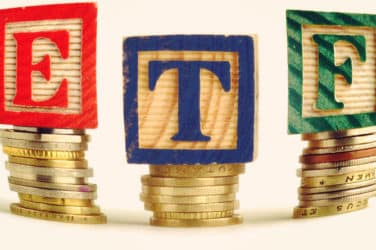Fidelity Investments, one of the world’s largest and most diversified financial services providers with more than $7.2 trillion in client assets, today announced the launch of a new company, Fidelity Digital Asset Services, LLC (“Fidelity Digital Assets”). The company will offer enterprise-quality custody and trade execution services for digital assets, commonly referred to as cryptocurrencies, to sophisticated institutional investors such as hedge funds, family offices and market intermediaries.
“Our goal is to make digitally-native assets, such as bitcoin, more accessible to investors,”said Abigail P. Johnson, Chairman and CEO of Fidelity Investments. “We expect to continueinvesting and experimenting, over the long-term, with ways to make this emerging asset classeasier for our clients to understand and use.”
“We started exploring blockchain and digital assets several years ago, and those efforts have been successful in helping us understand and advance our thinking aroundcryptocurrencies,” said Tom Jessop, head of Fidelity Digital Assets. “The creation ofFidelity Digital Assets is the first step in a long-term vision to create a full-service enterprise-grade platform for digital assets.”
One of the steps in realizing this future for digital assets is to create a foundation of institutional-quality solutions that will continue to help advance the industry. While there are many retail service providers in the digital assets space today, there is a gap in support for institutions. This has created a paradox — while Greenwich Associates found that 70 percent of institutional finance executives believe cryptocurrencies will have a place in the future of the industryi, many firms are waiting on the sidelines to enter this market. When Fidelity Digital Assets rolls out its initial offering, it will provide solutions that institutional clients have been asking for and Fidelity — with its experience serving more than 13,000 institutions today — is ideally suited to support.
What the Market Requires
In its most recent edition of the Fidelity Global Institutional Investor Survey, Fidelity found that 70 percent of institutional investors said that new asset classes will likely emerge because of advancing technologies, such as blockchain. With the rise of interest in digital currencies and various use cases, institutional investors — such as hedge funds, family offices and market intermediaries — look to enter the market for a number of reasons. Whether it’s the rising popularity as a store of value or relative non-correlation to the broader market, the potential to power lower-cost global payments, or the emergence of protocols that could power new industries, institutional investors are interested in engaging with this new asset class. Fidelity Digital Assets is building the foundation needed to further the market adoption by offering:
- Institutional-Grade Custody of Digital Assets
Fidelity Digital Assets will provide a secure, compliant, and institutional-grade omnibus storage solution for bitcoin, ether and other digital assets. This consists of vaulted cold storage, multi-level physical and cyber controls – security protocols thathave been created leveraging Fidelity’s time-tested security principles and best practices combined with internal and external digital asset experts. Learn more about“Custody in the Age of Digital Assets” here. - Trade Execution
Fidelity Digital Assets will leverage a proven internal crossing engine and smart order router for trade execution of digital assets. This smart order router will allow for execution at multiple market venues. - Dedicated Client Service
Given the complexity of digital assets, the early stage of institutions’ involvementwith these asset classes, and Fidelity’s long-standing tradition of putting its customers first, Fidelity Digital Assets will emphasize client support in its offering. Fidelity Digital Asset clients will have access to a dedicated team of client service specialists, from onboarding throughout the entire relationship with the company.
“In our conversations with institutions, they tell us that in order to engage with digitalassets in a meaningful way, they need a trusted platform provider to enter this space. Theseinstitutions require a sophisticated level of service and security, equal to the experience they’re used to when trading stocks or bonds. With Fidelity Digital Assets, we’re building a scalable infrastructure for digital assets that meets the expectations of what it means to work with Fidelity, while leveraging unique capabilities of the blockchain to create a completely new offering,”concluded Jessop.
Fidelity’s Commitment to Digital Assets
Since Fidelity’s founding more than 70 years ago, it has been a leader in the use of technology and in offering new products and services.
Fidelity believes that distributed ledger technologies can enable entirely new business models, lead to the creation of frictionless capital markets and improve existing financial market infrastructure. Fidelity can envision a world where all types of assets are issued natively on a blockchain or represented in tokenized format.
Fidelity began researching digital assets in its Blockchain Incubator (part of Fidelity Center for Applied Technology) in 2013 and has since experimented with mining, enabled its customers to see their digital asset balances at Coinbase on Fidelity.com, and has collaborated extensively with others committed to furthering this space, including an effort with the MIT Digital Currency Initiative to host the first Layer 2 Summit in May 2018. Fidelity Charitable® also began accepting bitcoin as charitable donations in 2015, an idea that was born out of donor demand and influenced by their feedback. Fidelity Charitable®, an independent public charity, received $69 million in digital asset donations in 2017, a ten-fold increase since 2016.
Though Fidelity Digital Assets started in the Blockchain Incubator at Fidelity and has now graduated from this group to become a stand-alone business, the incubator continues to research and experiment with blockchain and digital assets, expanding Fidelity’s knowledge and potential products/services, and also contributing to continued progress in the ecosystem.






